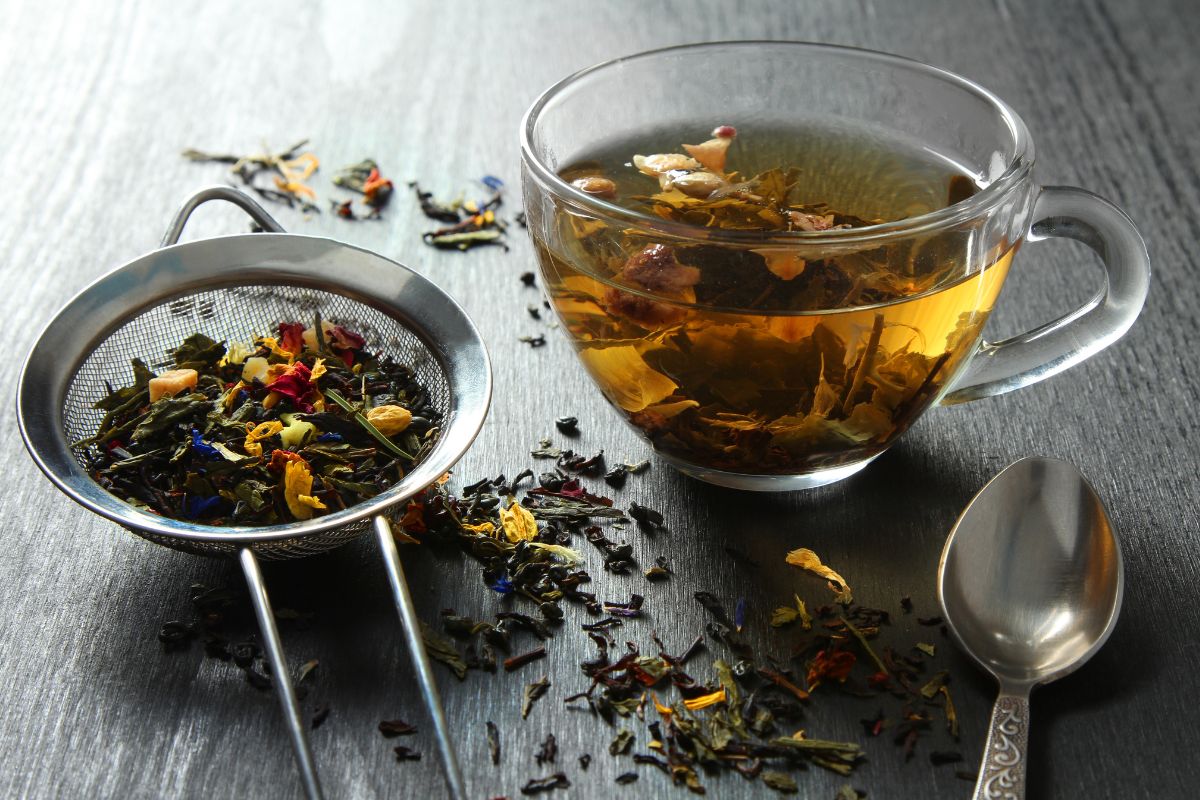Let’s be honest: getting a good night’s sleep isn’t always easy, right? After a busy day full of responsibilities, stress, and nonstop notifications, sleep often ends up pushed aside. Many people go to bed physically, but their minds just won’t stop racing—thinking about everything that happened and everything that still needs to be done. Sound familiar?
The truth is, this problem is becoming more and more common. Daily stress, screen overuse, and lack of a relaxing nighttime routine all pile up and mess with our ability to unwind. And when your body doesn’t rest properly, it shows: constant fatigue, irritability, lack of focus, and even more serious health problems. In other words, sleeping well isn’t a luxury—it’s a basic need.
That’s why so many people are turning to natural solutions, especially medicinal plants to help with sleep and relaxation. These herbs have been used for centuries by different cultures to calm the mind, ease tension, and promote deep, restorative sleep. And the best part? They do it gently, without the side effects that many medications bring. If you’re looking for a more natural way to take care of your sleep, this article is for you.
🌼 1. Chamomile: the classic that never fails
Chamomile is one of those plants we’ve heard about since we were kids—usually in the form of a warm cup of tea made by grandma to calm us down. But it’s more than just a cozy memory. This delicate little flower is packed with compounds like apigenin, a flavonoid that binds to specific receptors in the brain and helps reduce anxiety and promote sleep. The effect is gentle but consistent—perfect for winding down without feeling overly drowsy. It’s like a warm whisper telling your body, “Hey, it’s okay to rest now.”
Besides being one of the most accessible medicinal plants to help with sleep and relaxation, chamomile also has anti-inflammatory and digestive properties, which help the body relax overall. And let’s be real: falling asleep is much easier when your stomach is happy and your body is at ease. Drinking a cup of chamomile tea 30–40 minutes before bed can make a big difference. For an extra boost, try mixing it with other calming herbs like lemon balm or lavender. Simple, natural, and incredibly effective.
🌿 2. Valerian: powerful and effective
If you’ve been searching for natural ways to sleep better, you’ve probably come across valerian root. This herb has a natural sedative effect that works directly on the central nervous system, helping calm the brain and prepare the body for rest. Sounds technical, but all you really need to know is—it works. Many people with chronic insomnia or anxiety say they fall asleep faster and wake up less during the night when using valerian regularly. It mainly works by increasing GABA, a neurotransmitter that slows down nervous activity and promotes a sense of calm.
Now, fair warning: valerian has a very strong taste and smell (some would say weird 😅). That’s why most people prefer taking it in capsule or tincture form, which are easy to find in health stores. It’s best to start with a low dose and see how your body reacts, since it can have stronger effects on some individuals. That said, if you’re looking for a powerful ally among medicinal plants to help with sleep and relaxation, valerian is a solid choice. It may not be the tastiest, but it definitely gets the job done.
🍃 3. Passionflower (Passiflora): calm for the heart
When it comes to calming the mind and heart, passionflower is a true gem. Most people know passion fruit as a “calming fruit,” but it’s the flower that carries the strongest relaxing properties. Passionflower acts on the central nervous system, reducing excitability and helping your thoughts slow down. In simpler terms, it tells your brain, “It’s safe to rest now.” If you often feel overwhelmed or your heart races with stress, passionflower might just become your new best friend.
The cool thing is, passionflower tends to have a gentle and gradual effect. It won’t knock you out instantly, but it will guide you into a restful state naturally. You can take it as a tea, tincture, or capsule—whatever fits your routine best. And guess what? It combines well with other medicinal plants to help with sleep and relaxation like valerian and chamomile, enhancing the calming effects without causing drowsiness the next day. It’s perfect for transitioning from a hectic day to a peaceful night.
🌱 4. Lemon Balm: gentle, tasty, and calming
Lemon balm, also known as Melissa, wins people over with its fresh aroma and mild, pleasant flavor. But don’t let the gentle taste fool you—this herb has real calming power. It’s known for its anxiolytic (anti-anxiety) and mild sedative effects, making it perfect for reducing mental tension and encouraging natural rest. It’s a great option for those who want something subtle, yet effective, without feeling too “off” the next day.
One of the best things about lemon balm is how versatile it is. You can drink it as a tea on its own or combine it with other herbs like chamomile, lavender, or passionflower. You can even create a soothing nighttime blend with lemon slices, honey, and a bit of lavender oil diffusing in the background—instant calm! Plus, it’s super easy to find at markets, herbal shops, and even in your own garden. If you’re just starting out with medicinal plants to help with sleep and relaxation, lemon balm is the perfect gateway: gentle, trustworthy, and absolutely delightful.
💜 5. Lavender: relaxation through scent
Ah, lavender… just hearing the name feels like a deep breath out, doesn’t it? Unlike most herbs in this list, you don’t need to drink lavender to get its benefits—its aroma is the magic. Used widely in aromatherapy, lavender helps reduce stress, calm the nervous system, and improve overall sleep quality. The essential oil acts on the limbic system, the emotional part of your brain, promoting a deep sense of relaxation. It’s like your body just knows it’s time to wind down.
There are so many easy ways to add lavender to your nighttime routine. Try adding a few drops of essential oil to your pillow, use a diffuser in your room, or take a warm bath with a couple drops before bed. You can even tuck a little sachet of dried lavender inside your pillowcase. If you struggle to “switch off” at night, lavender might be just what you need. It’s the perfect final touch in this list of medicinal plants to help with sleep and relaxation, bringing not just physical calm, but emotional comfort too.
💬 Why turn to medicinal plants to help with sleep and relaxation?
We live in a world that never stops. With constant demands, digital overload, and endless to-do lists, our minds and bodies stay in a state of alert for far too long. That’s why so many people are turning to natural alternatives like medicinal plants to help with sleep and relaxation. These herbs don’t force you to sleep—they gently support your body in finding its own rhythm again. And that, honestly, is powerful.
Unlike many synthetic medications that come with side effects like grogginess, dependency, or mental fog, medicinal herbs work more in harmony with your body. They help regulate stress hormones, reduce anxiety, and signal the nervous system to unwind. Of course, each herb works differently, and it’s always smart to explore them mindfully—but overall, they’re a safe and effective choice for improving your sleep naturally.
And more than that, using herbs can become a form of self-care. Brewing tea, inhaling a calming scent, or soaking in a warm herbal bath are small but meaningful rituals that tell your body: “It’s okay to rest now.” Creating these intentional habits before bed can make a big difference in how easily you fall—and stay—asleep. In today’s fast-paced world, giving yourself these pauses is a gift your body and mind will thank you for.
💡 Build your own herbal sleep ritual
Here’s a simple routine you can try starting tonight:
- Turn off screens at least one hour before bed (tough, but worth it!)
- Brew a tea with chamomile and lemon balm
- Diffuse lavender oil in your bedroom
- Play soft, calming music
- Take a few deep breaths and allow yourself to fully unwind
These little actions create a safe space for your body and mind to let go of the day and ease into rest.
✨ Small changes, big impact
Getting better sleep doesn’t have to be a far-off dream. Sometimes, the answer is right there—in nature—waiting for you to slow down and connect. Medicinal plants to help with sleep and relaxation are gentle allies that can truly change the way you experience rest. When you start making room for these natural supports in your routine, sleep starts coming more easily, your mind calms, and you wake up feeling more like yourself.
There’s no magic formula, but intentional habits done with care can have a lasting impact. Creating a bedtime ritual, connecting to your breath, and allowing your body to slow down naturally is one of the kindest things you can do for yourself. So why not give these herbs a try? Brew that tea, breathe in the lavender, and start treating sleep not as a struggle—but as a moment of peace you absolutely deserve.
👉 Want to dive deeper into the world of calming herbs? Check out this article from Synergia Shop, which features a great selection of relaxing and anti-stress plants, along with practical tips for everyday use: Read it here. It’s definitely worth a look!

Sam Bright is a passionate researcher of the power of medicinal plants and their benefits for health and well-being. With years of study and practice in the use of therapeutic herbs, he is dedicated to sharing accessible, evidence-based knowledge on how nature can support health holistically.
Through his blog, Sam explores everything from the traditional uses of plants to modern scientific discoveries, always with a practical and informative approach. His goal is to help people integrate herbal medicine into their daily lives in a safe and effective way.

